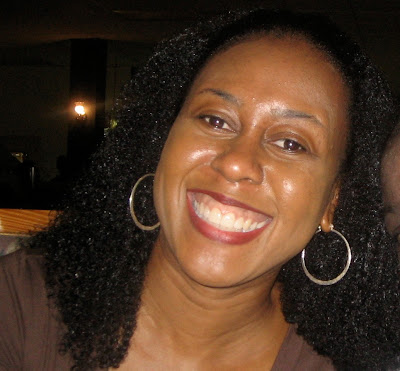Thomas Armstrong, Of Water and Rock, Montreal, DC Books, 2010, pp.330. ISBN 978-1-897190-60-9. / Reviewer: Frank Birbalsingh, Indo-Caribbean World (2011)
Whatever his attraction to Barbados, it seems strange that a bright, sun-filled Caribbean island should provide the setting for distinctly Gothic undertones in Armstrong’s story of a young Canadian, Edward Hamblin who, without any previous knowledge of Barbados, arrives alone on the island in 1969 to assume a legacy bequeathed to him by his father’s aunt Sarah. For one thing, Edward had never met his great aunt who lived and died in Barbados. For another, he knows just as little about his father who was born in Barbados but had left home when he [Edward] was very young. All Edward knows, from his black Bajan lawyer Chesterfield Cumberbatch, is that he has inherited Hamblin Hall cottage in Barbados.
The novel opens with Cumberbatch meeting Edward at the airport and taking him to Hamblin Hall cottage. It is an eye-opener to meet neighbours such as Sissy Brathwaite, an old woman desperately struggling to survive in her own house and land, his servant Undine who had previously worked for Sarah, and Richard Clermont, alias Doc, who starts life as a brilliant scholar only to decline into an eccentric, best known for his prophetic pose in talking to trees or searching for black coral in caves. Edward also meets white neighbours – the Collymores – James and his two grown-up daughters Judith and Mary, and from these brief encounters realises how different a society he has come to: one that until 1966 was a British colony most of whose history consisted of white-owned sugar plantations maintained by the labour of African slaves. This is why the Bajan population is divided between mainly African-descended Blacks and a small number of Whites, with some mixed blood people of African/European stock. Sissy, Undine, Doc and a professional like Cumberbatch are from one side of Bajan history with the Collymores on the other.
As Edward gropes his way through this unfamiliar culture, conditioned by one of the most grievous examples in all history of man’s inhumanity to man, Gothic elements emerge from his puzzlement at evasive answers to questions that he asks his neighbours, awareness of secrets in their past, and growing suspicion of dark, sinister and mysterious dealings on their island paradoxically regarded as a holiday paradise of sun, blue sea and white sand. The paradox reminds us of Jean Rhys’s comparison of the Caribbean island in her classic novel Wide Sargasso Sea to the Biblical Garden of Eden corrupted by abuse from primal human sin. Sissy’s nephew RJ catches the spirit of Rhys’s comment when he tells Edward: “People like Auntie [Sissy] learn tuh take abuse and say nuthin. An people like dem Collymores ain’t change ever since... Dey tink dat because dey white, dey better den we. Dey abuse our women an nobody ain’t ever held tuh account.” (p.134) RJ puts his finger on the primal Bajan and Caribbean sin of slavery and its legacy of abusive relationships between white master and black slave.
This legacy of racial abuse is built into the very structure of Bajan society with its clear contrast between a largely black working class and white families like the Collymores. At a typical white soiree, for instance, held at the Collymores, Edward meets the family of Rupert Weatherby the British High Commissioner to Barbados, and observes the difference between his own Canadian views and the racist attitudes of both his hosts and their visitors. Worse still, in a later scene where Sissy sells sugar cakes at her market stall, Mary Collymore chaperones a white child Liliane who accepts a sugar cake generously offered by Sissy, but Mary rudely knocks the sugar cake out of Liliane’s hand and angrily rebukes Sissy: “How dare you? ... You dirty woman. Who knows where your hands have been?” (p.126) Mary also turns on Liliane: “don’t ever take anything from these people.” (p.126) It is a climactic scene whose full significance cannot be explained here without giving away the denouement of the novel.
Suffice to say that the denouement of Of Water and Rock relies on the curse of race in Bajan history and a suspenseful story of Edward’s long search and discovery of his great aunt’s lost diary in which answers are revealed to questions about his father, the Collymores, Sissy and Barbados. In structure alone, Armstrong deserves great credit for technical expertise, rare in a first novel, which plunges his narrator boldly into an exotic voyage of discovery, through stage by suspenseful stage, and brings him through to the end where older characters like Sissy Brathwaite and James Collymore are dead, all passion is spent, old sores tended if not healed, and a much chastened Edward looks forward to a joint future living with Judith Collymore.
As someone who is Bajan neither by birth nor upbringing, Armstrong should also be given extra credit for catching the verve and vibrancy of Bajan speech. RJ’s comment above, for instance, could not convey the true horror of Bajan history without its combination of simple, direct expression, raw idiom, or lilting rhythm and intonation. There is similar rawness and physical directness in Doc’s response to schoolboy taunts: “Uh gin tuh pelt wunnuh wit dis here rockstone, yuh black savages,” (p.115) and it registers a uniquely Caribbean style of expression which fully captures what Derek Walcott describes as “the passion and wrong” of Caribbean history.
---
















